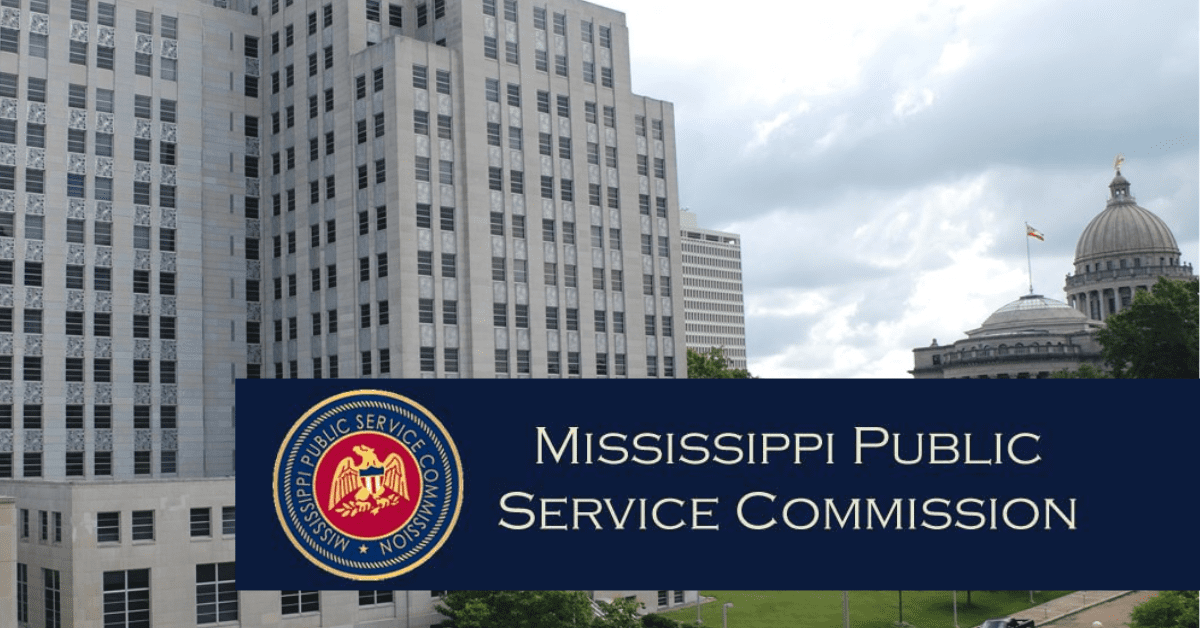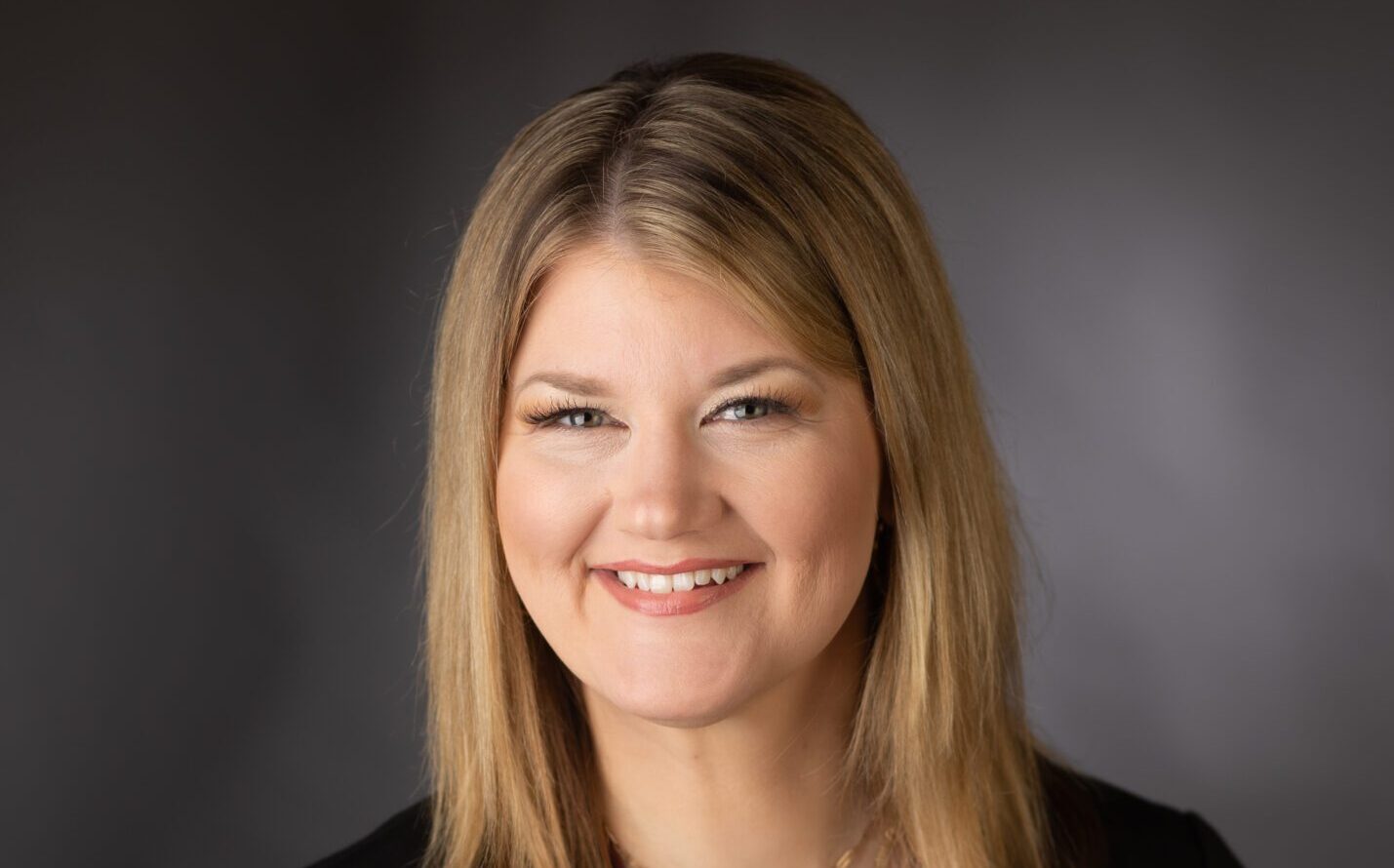
Meeke Addison speaks at the Do No Harm rally on Tuesday, January 24, 2023. Speaker Philip Gunn (left) looks on.
Woman who transitioned and then de-transitioned tells crowd of her traumatic life story while urging lawmakers to pass the legislation.
“This is not about love; it’s about a bottom line.” That was the message from Meeke Addison, co-host of the radio show and podcast Airing the Addisons, at the “Do No Harm” rally held in Mississippi on Tuesday regarding the “lucrative” industry being built around gender transitioning.
The rally, held at the Mississippi Trade Mart in Jackson, was focused on supporting the legislation currently being considered by Mississippi lawmakers that would prevent medical professionals from encouraging, coercing or performing procedures and surgeries on minors who are interested in gender reassignment.
“If we do not stand between our kids and a radical transgender ideology that has now found a partnership with money and increased revenue, then they (kids) will be destroyed,” said Addison. “There is no other explanation that since 2007, when we had one gender transitioning clinic in this country, to now in 2023 we’ve got 300. Why? Because they’re lucrative.”
There are at least 60 pediatric “gender clinics” in the US, according to the Human Rights Campaign’s interactive map. However, the Society for Evidence Based Gender Medicine (SEGM) estimates that the number of clinics and medical offices that provide hormonal interventions is estimated at over 300. According to this map, there are no stand alone gender pediatric clinics in Mississippi.
Addison said it has been openly expressed that when a doctor has a transgender patient, they have a patient for life due to the consistent demand for hormone replacement therapy. She said the push for gender reassignment is not about the highest level of care but instead about an increased revenue source.
Addison’s message was shared with others at the rally, including prominent lawmakers. The speakers emphasized that parents should be charged with making life altering decisions for their children under 18 years of age. A mentality, Addison says, has only become questioned by society as of late.
Speaker of the House Philip Gunn expressed his concerns for the children being impacted by such a life-altering decision.
“We are concerned about the health and consequences that go along with gender transitioning,” said Speaker Gunn. “We have decided as a society that children are not always capable of making decisions based on age, lack of maturity and lack of understanding. Is there any more consequential decision than changing one’s sex?”
The Mississippi rally featured medical professionals, lawmakers, policy advisors and one woman who lived as a transgendered male for 10 years before de-transitioning.
Senior Council for the Alliance Defending Freedom, Matt Sharp, said all over the country they are seeing a rise in gender reassignment therapies and surgeries. These procedures include puberty blockers and hormone replacement therapy, as well as elective surgeries to remove gender related organs. While the rise of individuals transitioning has grown, Sharp said so has the rise in those who are choosing to de-transition.
“Something that Mississippi and other states have long done is regulate professions and make sure that no profession is engaging in unethical conduct,” Sharp told the crowd. “Based on the science and European countries that are pulling back from this saying they are no longer going to allow children to go through puberty blockers and hormones, but instead focus on psychological interventions. Mississippi is simply taking a step to ensure medical professionals are not doing this on minors.”
In May of 2021, Sweden’s national board of health officially adopted policies that would prevent prescribing hormones and puberty blockers for minors under 18, after Karolinska Hospital made the move in their pediatric clinics according to SEGM. Other countries including Italy, Argentina, Croatia and Portugal also have minimum age requirements of 18, and consent of a parent or guardian does not always change that.
Sharp said there has been a rise in gender clinics across the U.S. including in Mississippi. He said the legislation currently being debated is aimed at ensuring the problem is addressed before it gets bigger.
The House bill that passed last week is known as the “Regulate Experimental Adolescent Procedures Act” (REAP), HB 1125. The bill would prohibit any organization or individual from providing gender transition procedures, including hormone replacement, for someone under 18.
HB 1125 received a 78-30 vote in the Republican super-majority Mississippi House on January 19th, with ten members absent or not voting and two others voting present. It was transmitted across the Capitol to the state Senate where similar bills have also been filed.
Sharp said the House bill ultimately protects the interests of minors who could be encouraged or taken advantage of in pursuit of gender reassignment.
A woman named Xandra, whose last name was kept concealed for privacy reasons, spoke to the large audience. She shared her experience as a transgender man, born as a woman, who de-transitioned back to being a woman.
Xandra said she began the transitioning process at 18 as a senior in high school but did not undergo any formal medical treatment until years later. She told a story filled with sexual abuse, starting at an early age, substance abuse, which added to her internal struggle to fit in during her youth with either males or females, and mental health issues.
When she first became familiar with the idea of gender transitioning, Xandra said it was easy for her to relate to that because she always felt different. She sought out transgendered communities online to learn more about hormone replacement and how it could benefit her in becoming male.
Shortly after, she began to socially transition by cutting her hair, changing her wardrobe and binding her chest with an ace bandage.
“I did not have the financial independence to pursue medical transition or therapies that were required at that time and my family refused to aid my transition in any way,” said Xandra. “I am thankful there were a lot of barriers that kept me from accessing surgeries and hormones at a young age and that my family never played along with my preferred pronouns.”
Xandra said once she did begin taking testosterone, the process to do so was simple and only required her consent on a signed form confirming that she understood the risks.
After living through her 20’s as a man, she attempted suicide in 2020 and began to reconsider her transition.
“I will never forget the day I took a hard look in the mirror, and I realized I no longer recognized myself,” said Xandra.
As she began to de-transition, and seek therapy for the first time, Xandra realized her issues of dysmorphia were the strongest during times of trauma, particularly when the trauma was sexual in nature.
Xandra considers her transition one of those traumatic experiences.
“Admitting my mistake after so long was one of the most embarrassing things I’ve ever done, and de-transitioning was one of the most isolating experiences I’ve ever been through,” said Xandra.
She said even as an adult, she feels she was not in the right place to make a decision to change her physical body in that way. Xandra said she does not believe anyone, particularly children should transition.
Xandra closed by making a personal plea to the Mississippi Senate to pass HB 1125 and prevent these medical procedures from being available to children.
Dr. Mike Artigues, President-elect of the American College of Pediatricians, said children who often suffer from gender dysmorphia also suffer from other mental health issues such as anxiety and depression.
Artigues added that any of the treatments that are currently employed to elevate these ailments in fact cause additional harm.
“If we take the Hippocratic oath seriously, here in Mississippi and across the country, we need to look at all the evidence that is available,” Dr. Artigues implored those gathered at the rally. “When we do this we can see what is actually being heralded in some circles as a standard of care is actually causing physical or emotional harm on our patients, as opposed to noninvasive, and equally effective mental health treatments.”
Artigues said the medical societies in other nations across the globe are coming to similar conclusions.











